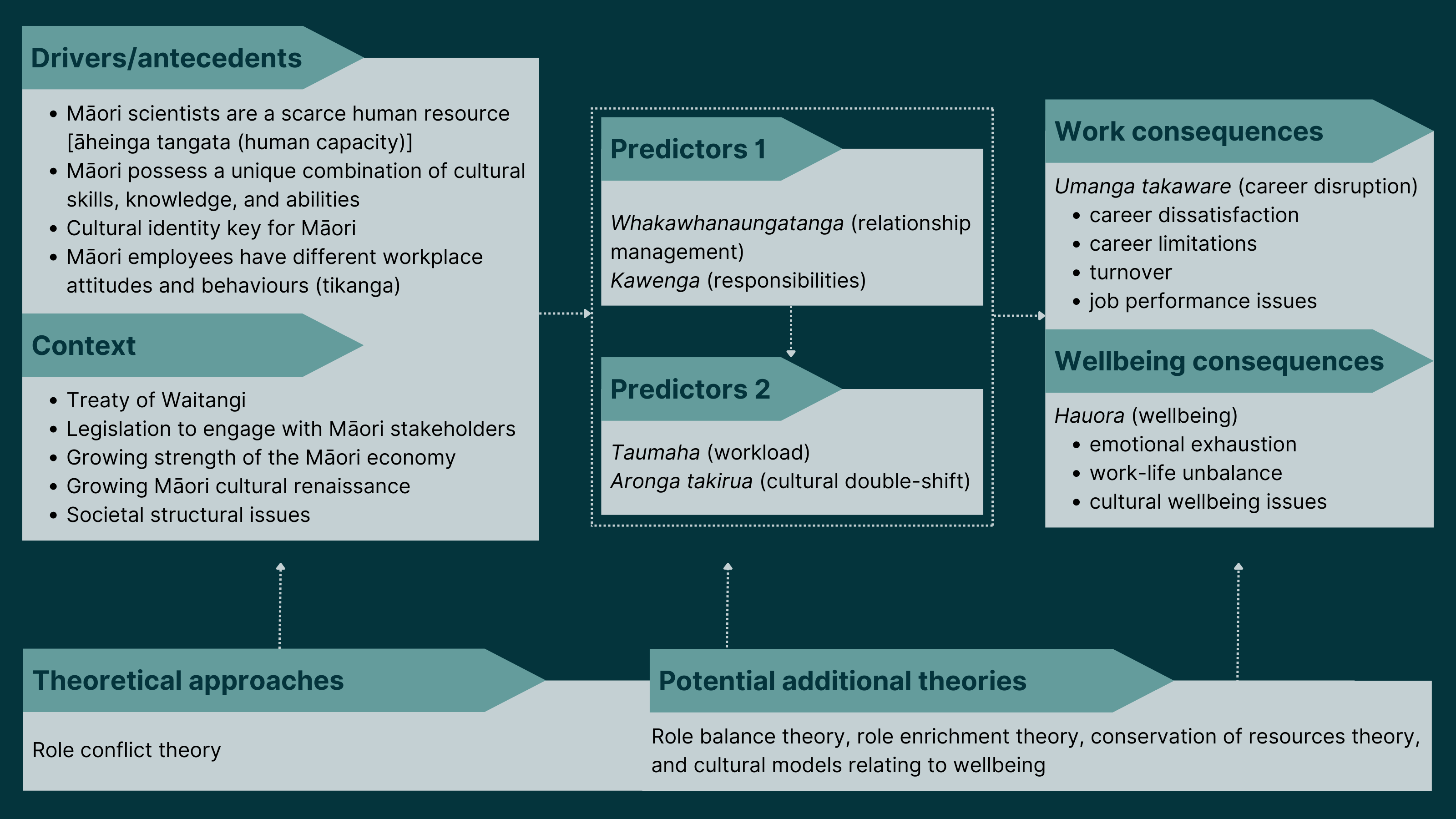HRM counteracting aronga takirua
Human resource managers (HRM) can counteract the detrimental effects of aronga takirua (cultural double shift) on Māori scientists.

Representing Māori culture, science, and Vision Mātauranga, while engaging with Māori stakeholders, puts a lot of extra pressure on Māori scientists. Although there may be some cultural benefits to this engagement, it seems that the impact on the health and employment of Māori scientists is mostly negative. This puts a lot of strain on a small group of Māori scientists and is likely to have negative consequences in the long run.
Māori scientists have multiple roles and work with both Western and Māori perspectives. This is often referred to as ‘double labour’, but it's not just about labour. The concept of aronga takirua, or cultural double-shift, also includes cultural obligations. This model explains the drivers and consequences of aronga takirua or cultural double-shift.

What can HRM do?
Adjust job sizing and funding
Although most Māori scientists engage with Māori stakeholders as part of their role, this may not be a paid component of their contract. To reduce aronga takirua, HRM and managers can enable Māori scientists who wish to engage with Māori stakeholders and adjust the size of these roles accordingly.
Perhaps doubling the current weighting would capture this cultural double-duty. This approach may help address the disparity faced by Māori scientists, given the extra responsibilities and burdens they carry.
Facilitating mentor opportunities
Effective mentoring by both Māori and non-Māori established scientists can be highly beneficial, especially for early career researchers. For some, a mentor may come in the form of an individual, such as a line manager or team leader, who pushes boundaries on behalf of the Māori researcher:
"I’ve got an awesome mentor, she’s really understanding. She’s not Māori, but she just gets it. It’s awesome. It helps that my boss is sticking his head out to push me into things."
For some, support can come from the science team, which acts as a "whānau" (family) by providing guidance and direction through the development of individual needs:
"I had an awesome team... They kind of just awhi’d me along. The fact that we have a whānau environment and we have this awesome project–there’s this awesome capacity (development programme) for different people from different areas. It’s a real strength of our project."
Related articles

Aronga takirua and hauora
Māori scientists are experiencing burnout because of the burden that is placed on them to provide their expertise on mātauranga Māori.

People skills and Vision Mātauranga
Developing people skills is crucial to fulfil the commitment to Vision Mātauranga.

Pākehā intermediaries in Māori research
Exploring the impact of Pākehā intermediaries in Māori-focused research and innovation.
